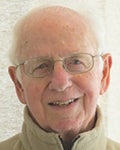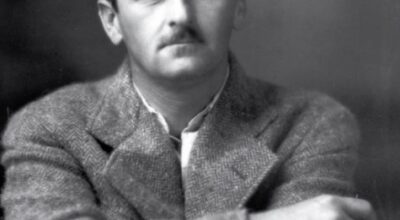A family trip to Spain
Published 6:00 am Sunday, January 29, 2017
By John Arrechea
(This is second in a series of three columns)
After enjoying our Basque tour, we drove to Narbarte, population, 300, where my father was born, a Spanish Basque, July 29, 1884.
We didn’t find the house; however, we did find the church, San Andres Apostle, where he was baptized. This area is about 18 miles, as a crow flies, to the Pyrenees, the international boundary between Spain and France — beautiful country with whitewash buildings and red tile roofs.
I’m biased to this part of the world. We drove to Sumbilla, 7 miles down the river, where the population is 650. This village is where the priest searched and found my ancestors on our previous trip in 1997. They were all born from 1856 back to 1690.
In a peaceful setting between the church and the river, we searched a small cemetery and found several Arrechea headstones, possibly from more recent generations. On our previous trip in 1997, Lois and I found a flat stone with ARRECHEA chiseled in it. Our daughters rubbed the name. (I think we have a jewel). Katherine and I met Sumbilla’s mayor, Amets Inda. She promised to do some searching and exchanged email addresses with Katherine to keep in touch. We found a grocery store. Our menu consisted of long loaves of home-made bread, ham, apples, chips, cokes and some kind of “ good looking” Basque sweet rolls.
Our two rented vans squeezed nicely into a vacant lot, overlooking the river. What do you want to know about “Picnicking Down Town in Basque Country? Leaving Sumbilla, we took a wrong turn and found ourselves looking over a stone fence. Enclosed was a small pasture with sheep. I counted 12 to 15 ewes and maybe six or eight baby lambs. A couple of the babies were getting hot lunch, with their long tails wagging. The other lambs were running, stiff-legged, chasing each other, just like baby lambs do. I hadn’t seen baby lambs play since I was a little boy in Texas. (Driver, thank you for making a wrong turn). Turning around, we were on our way to Pamplona, a city of 200,000. The bulls won’t be running, however, we planned to enjoy two days and nights. We had reservations for two nights at Palacio Guendulain. This four-star hotel was once the home of Queen Isabelle II during the 18th Century.
After a great Basque meal, we found the Plaza Del Castilla. The market was in full swing. I found a booth selling sheep cheese. I just had to have a 2-pound package. Katherine bought me a souvenir — an oak wood mounted battery clock. The wood is shaped like Navarre, the Basque province in which my father was born. As the Pilgrims entered Pamplona, they crossed the Bridge of Magdalena, a medieval bridge, built in the 12th Century. A 26-bed hostel houses the 5,000 pilgrims each year. Gary and the grandsons walked the half-mile Bull Run over the cobblestone streets of Pamplona. The cast bronze monument showed the dynamism, anguish and bravery of the 11 runners in the frenetic race with six bulls.
The boys all agreed, “Running with the bulls was not for them.”
On Christmas Eve, we attended a farm Christmas parade. Many farm wagons pulled by oxen or farm horses, filled with children, dressed in their best, singing Basque Christmas carols. Interspersed, older children playing a type of flute and a type of snare drum. Next came flocks of ducks, geese and chickens, controlled by ladies with grain and long sticks, followed were several hogs, sheep and goats controlled by young men with long sticks. Next, about 15 men were dressed in sheep’s wool, completely covered with their cone hats and shoes. Large cone-shaped bells, tied to their backs, sounding a loud ding, dong ding, dong. Behind the sheep men, came a large mechanical street sweeper, going whirly —whirly. The machine left a clean street.
When the parade was over and the huge local crowd was leaving, we heard the locals saying to each other, “Feliz Navidad,” which means “Happy Christmas.”
John Arrechea is an Oxford resident. Contact him at jonlo@maxxsouth.net.






